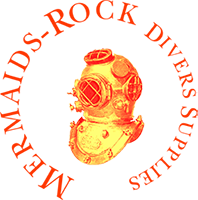Contreversy ... Cousteau was anti-semitic and a liar, says biographer
Source: The Guardian / Cousteau Contreversy Cousteau was anti-semitic and a liar, says biographer Jacques Cousteau, the marine adventurer who won fame for revealing the murky secrets of the ocean's depths to millions of television viewers around the world, may also have spent the best part of his life concealing a few murky secrets of his own, his biographer claimed yesterday. Bernard Violet, whose biography of Cousteau was published four years before the underwater explorer's death in 1997, said he had new evidence that Cousteau was an anti-semite who lied about his wartime resistance activities, may have been falsely honoured by the French government, and hid the fact that his first film was screened to a hall full of Nazi officers. "Much of this material, not unnaturally, was not available to me when I was first researching the biography and has come to light only since Cousteau died," Mr Violet said. "Some of his friends have sent me copies of documents and letters he wrote to them. They contain some terrible phrases." One letter to Cousteau's best friend, Phillippe Tailliez, is dated May 1 1941. In it, the future captain of the Calypso complained bitterly of the problems he, his wife Simone and their two sons were having finding accommodation in Marseille, at that time a temporary haven for thousands of Jewish refugees trying to flee occupied France. "We still have not found accommodation and are obliged to camp in the small pavilion of a family pension on the Corniche," he wrote. "It is not very much fun for Simone, but no suitable apartment will become available until we have booted out all the vile yids who are burdening us." While Cousteau's brother, Pierre-Antoine, was a well-known Nazi sympathiser who edited the anti-semitic newspaper Je Suis Partout and had close relations with the wartime German ambassador to Paris, Otto Abetz, no evidence had previously come to light that Cousteau himself - who was honoured as a resistance hero - may have had Nazi sympathies. After the war, Pierre-Antoine fled to Austria, living under a false name for several months before being arrested and sent back to France, where he was sentenced to death. Cousteau, who later became so popular in France that he received 80,000 letters in 1981 asking him to run for president, gave evidence at the trial wearing his naval uniform and medals. He is said to have used his influence to get his brother's sentence commuted to life imprisonment. In his posthumous autobiography, Cousteau - whose film The Silent World won him an Oscar in 1957, but who has since been accused of faking many of the scenes in his television documentaries - made no mention of Pierre-Antoine. He wrote of his wartime activities that he "participated in the resistance and acted as a liaison officer for the navy in exile in London". But Mr Violet now says there are grave doubts surrounding Cousteau's supposed resistance activities, pointing out that the "secret mission" of January 1941 for which the young naval officer was awarded the Légion d'honneur in 1946 was in all probability carried out at the request of a leading official in the collaborationist Vichy government, rather than as a mission for the Free French movement in London. Later in the war, after a near-fatal car crash, Cousteau perfected the underwater diving and filming technology with which he was to make his name. But far from completing his first film, Eighteen Metres Deep, in 1945 as Cousteau and several flattering French magazine portraits have claimed, the feature was first screened on April 10 1943. In the audience were the collaborationist French education minister, the cultural cinema director of the Third Reich, and several hundred German army officers. "Cousteau never talked about this publicly," said Mr Violet. "The film got a rave review in Je Suis Partout, and the screening allowed Cousteau to obtain all the permits and passes he needed to carry on producing more films."
LATEST ARTICLES
- “El Buzo,” or “The Diver,”... Statue... Mexico.
- Dive Into History
- Depth Of The Deepest Dive With Breathing Apparatus
- A BRIEF HISTORY OF DIVING: FREE DIVERS, BELLS AND HELMETS
- Saturation Diving Technique
- 20,000 lies under the sea ... The fishy world of Jacques Cousteau
- Royal de Luxe ... The Giant Diver Mechanical Marionette
- Europe's first underwater museum opens off Lanzarote
- Cousteau legacy still making a splash
- In Memoriam | Bob Kirby: 1933-2022
- The COMEX Story
- 10 Things No One Tells You Before You Become A Deep Sea Diver
- Diving Suits through History
- Training And Qualifications in Commercial Diving
- Australia’s deepest ever commercial dive leads to brain injuries, mental scarring


